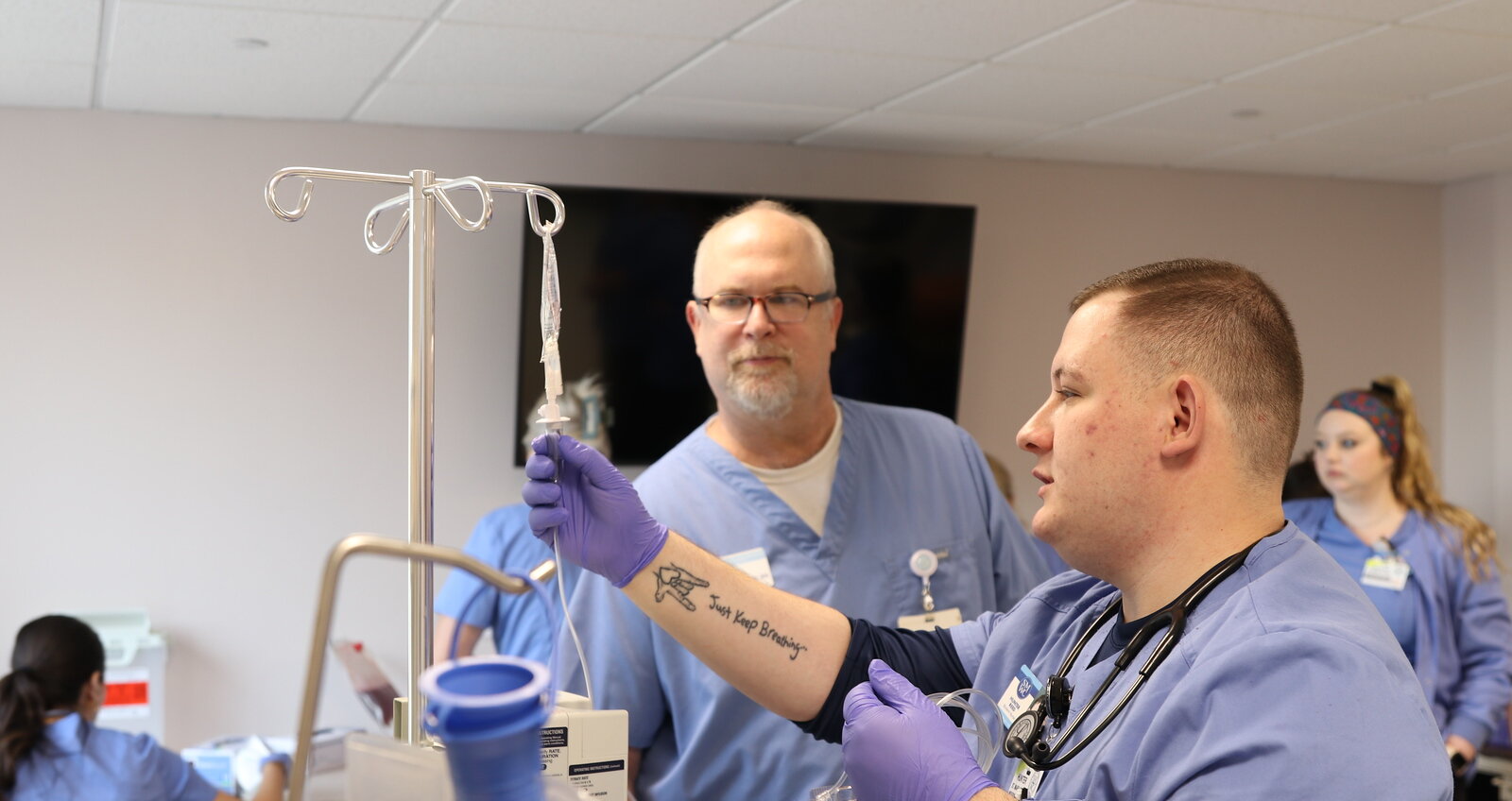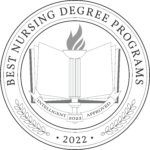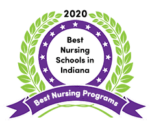
B.S. for Paramedic Science to Professional Nursing Program
Prepare for a career in healthcare with an online BSN degree from Saint Mary-of-the-Woods College. As a nursing student at SMWC, you will be prepared to assume a role in professional nursing or advance to graduate education.
Paramedic to BSN Overview
Individuals who have an interest in nursing careers are facing barriers such as daily campus classes and weekly clinicals. Many paramedics desire to advance to the role of a registered nurse; however, there is tremendous pressure to continue their employment. This online PM-BSN will be an option to reach their career goal. Our transfer-friendly, online degree programs provide you with the flexibility to continue your career while working toward your degree. Plus, you’ll graduate with a strong foundation in liberal arts.
The track is designed for paramedics who have completed an associate of applied arts, an associate of science degree or hold a paramedic license without additional earned higher education credits. Related college credit from any accredited institution of higher education may be applied to the program requirements, including graduate-level courses. All applicants will receive 39 college credit hours based on their current Paramedic License.
The program is an online offering to work with varied work schedules and enables paramedics to remain employed in the field while completing this degree. There is a combination of two campus labs, three courses that provide clinical simulations and arranged local patient care experiences with an approved preceptor. The last semester includes 60 hours of precepted clinical practice in an area that the student hopes to pursue after graduation. While it is offered online, it is currently only offered in the state of Indiana.
The track is currently starting in August and January. Students may apply at any time, and General Education courses are offered online year-round and may be taken prior to the start of the nursing program. It is advised students should be admitted at least one month prior to classes starting.
The goal of this BSN completion program is to expand the student’s competencies in health promotion, leadership, evidence-based practice and nursing discipline-specific knowledge.
The PM-BSN program requires 125 credit hours of coursework and 60 clinical hours. The cost per credit hour is not eligible for a tuition discount (this rate is eligible for non-institutional aid such as state grants, federal loans, VA loans, outside scholarships, etc.), and the program can be completed in two years. Students may take pre-requisite/non-nursing courses as a “non-degree seeking student” BEFORE entering the PM-BSN coursework at the tuition discount-eligible WOL rate.
Two campus visits are required. One during the first week of the program and one at the start of the last semester (Friday and Saturday before classes start).
PM-BSN Clinicals for Out-of-State Students:
The classroom portion is asynchronous; however, there are precepted clinical requirements throughout the plan of study. To maintain the integrity of the program and ensure that students meet all requirements for licensing, clinical requirements are limited to the State of Indiana. In the best interest of our program and students, we are not able to accommodate out-of-state clinicals.
Learn more about the program and view detailed course information:
Paramedic to BSN Major Curriculum – College Catalog
Progression of classes for the January track – Each student’s path of study may look different based on the amount of transfer credit awarded by the College. Please view the pdf to see which path of study best fits your incoming degree to approximate your path. The Department of Nursing has a dedicated academic advisor who will work one-on-one with each student.
Path of Study – January
Progression of classes for the August track – Each student’s path of study may look different based on the amount of transfer credit awarded by the College. Please view the pdf to see which path of study best fits your incoming degree to approximate your path. The Department of Nursing has a dedicated academic advisor who will work one-on-one with each student.
Path of Study – August
FAQs
Why get a degree in nursing at SMWC?
The nursing department faculty at SMWC bring their real-world experience to the classroom and clinic teaching to help you learn how to deliver compassionate care. Graduates of our nursing program are prepared when they go into the healthcare world.
What are the benefits of earning an online degree in nursing?
An online BSN degree from SMWC prepares you to advance to the role of a registered nurse.
What kind of flexibility does an online program provide?
Our online programs provide plenty of flexibility for those individuals who want to go back to school, but not uproot their whole life. According to a study by Education Dynamics, 80% of online college students are employed. Our transfer-friendly approach will ensure that you can finish your degree, and our eight-week format allows you to set your own pace and study based on your schedule.
What can you do with a bachelor’s degree in nursing?
Graduates of our nursing program can have an immediate impact in healthcare or further their education. They could get their master’s in nursing or even go on to be family nurse practitioners. Some of the jobs you can get with a nursing degree:
- Insurance adjuster
- Occupational health nurse
- School nurse
- Health department nurse
- Red Cross nurse
- Acute care units
- Long-term care units
- Surgery nurse
- Nurse educator
- Flight nurse
What is the average annual salary of someone with a nursing bachelor’s degree?
As you look at starting salaries, keep in mind that the cost of living and opportunities to move with a career or industry sector should also factor into your decision. The Bureau of Labor Statistics reports that the average salary for a registered nurse is $81,220.
What support and resources are provided at SMWC?
The Learning Resource Center (LRC) provides exceptional, personalized learning resource services to encourage student success. The LRC offers help with a range of academic support services, including a writing center, tutoring, college success courses and more.
Saint Mary-of-the-Woods College is routinely ranked by U.S. News and World Report among the Best Regional Universities in the Midwest and the Best Value Schools. Our departments are also routinely ranked for their individual degree programs.
See the SMWC Difference:
Are you ready to take the next step and become a BSN? Here’s what you need to know.
Priority Admission Deadlines:
- May 1st for August cohorts and Oct 1st for January cohorts
- All materials must be submitted and received, including application, transcripts (including high school, per the Indiana State Board of Nursing), active state or national registry, Paramedic license and ATI TEAS score.
- We will rank and evaluate applicants based on these criteria:
- Internal applicants (those who have completed a degree through SMWC or are currently matriculating at the college)
- Indiana residents
- ATI TEAS scores and cumulative GPA
Application Information:
- Applications will be accepted until the cohort is filled. Late applications/enrollment commitments will be taken up to the January and August class start date but may result in late ATI course materials.
- Must have an earned associate of applied arts or associate of science degree, or a certificate in paramedic studies or hold a current paramedic license.
- Must be an Indiana resident or willing to attend in-person precepted clinical in Indiana for Medical-Surgical Nursing I, II and III (36 hours each), Community Nursing (36 hours) and Professional Role (60 hours).
- The Nursing Admission, Progression, and Reinstatement Committee will review all previously earned college credit, and students must have earned an overall 2.5 GPA.
- Students need to score 58% (“proficient”) on the Assessment Technology Inc. (ATI) entrance examination identified as the Test of Essential Academic Skills (TEAS) within the last 24 months of the admission deadline. Students can register for the exam at www.atitesting.com. The program accepts scores received in-person at an approved testing location or virtually proctored through ATI’s Proctorio software. Regardless of the location of the testing site, a student may only attempt this exam twice per admission cycle. If students attempt this exam more than twice, regardless of the location, the Department of Nursing will only look at the first two scores.
- Must have a current criminal background check within 30 days of admission to the program using Castle Branch, and our package code is SW16.
- Must have a negative 10-panel Drug Screen within 30 days of application.
- Proof of immunizations, CPR/BLS certification, negative TB test, and personal health insurance, are also required for admission.
- Virtual simulations equivalent to 36 contact hours are required in Mental Health Nursing, Maternal Infant Nursing, and Child Adolescent Nursing.
- In Medical Surgical Nursing I, II and III there are a total of 36 patient care clinical hours at an acute care facility, as well as virtual simulations.
- The last clinical course will have 60 patient clinical hours.
Application Process:
- Completed online application
- Official transcript of all collegiate work
- A current résumé
- Proof of paramedic licensure
- ATI TEAS score submission
Our program is accredited by the following organizations:
- Indiana State Board of Nursing has accredited the undergraduate nursing program and may be contacted at https://www.in.gov/pla/nursing.htm
- The baccalaureate degree program in nursing at Saint Mary-of-the-Woods College is accredited by the Commission on Collegiate Nursing Education (https://www.ccneaccreditation.org)
- In addition, the College is accredited by the regional Higher Learning Commission. Public comments may be communicated at https://www.hlcommission.org/

